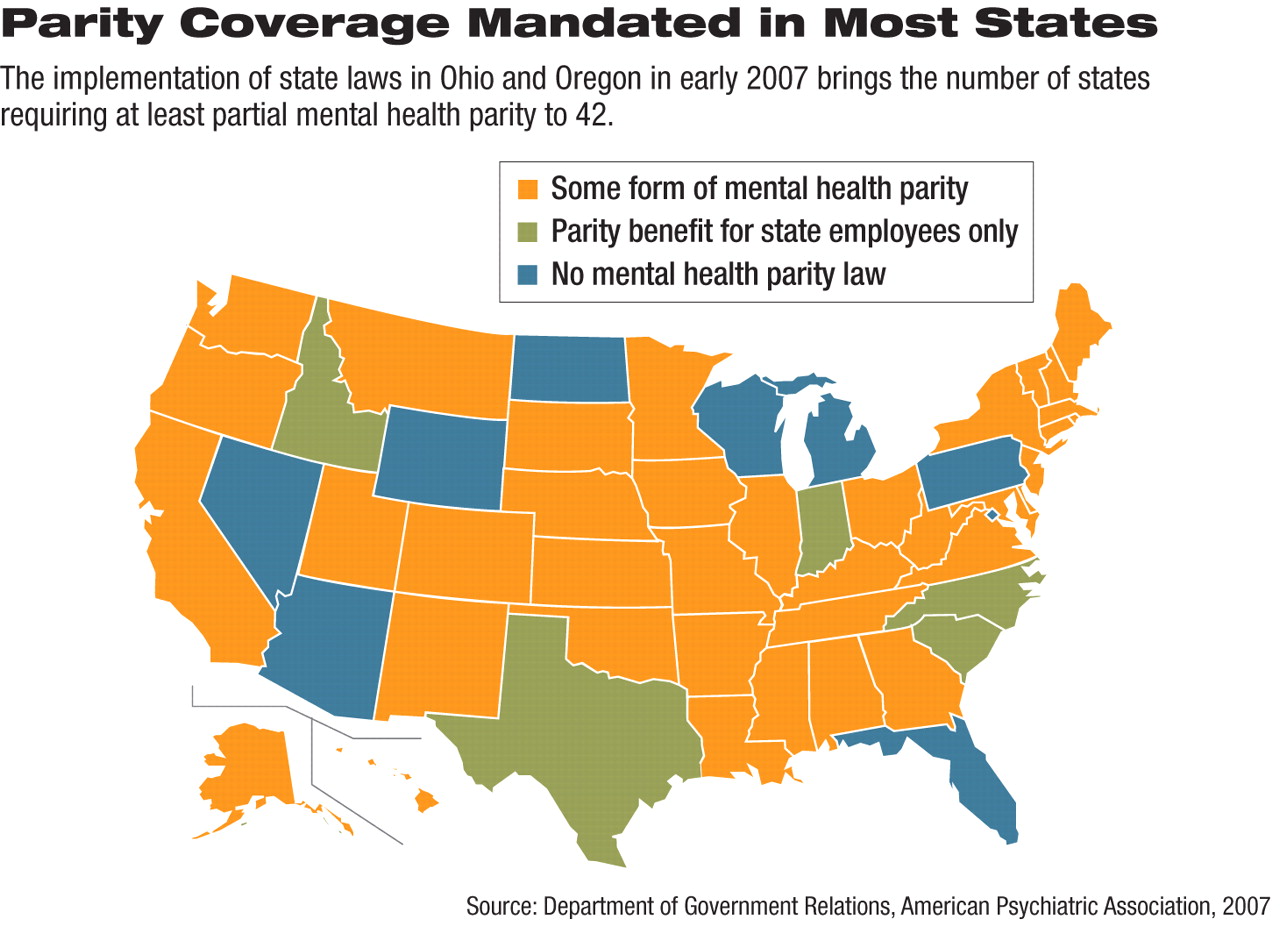Ohio and Oregon have joined the growing list of states that mandate some form of mental health parity, bringing the number of states that have taken action on parity to 42.
The law, known as SB 116 as it worked its way to through the legislature, requires health insurance plans to offer the same treatment for a range of mental illnesses as they do for other types of medical illnesses.
The measure, which was opposed by some small-business groups that complained it would saddle them with additional costs, was signed by Gov. Robert Taft (R), who had issued a veto threat that killed similar legislation two years ago.
Taft said that in the intervening years he had re-examined the issue and now expected the costs to be “minimal.” He indicated his belief that any drawbacks in a parity law will be outweighed by the benefits of providing mental health treatment to people who might otherwise end up homeless, hungry, or imprisoned.
A 1999 U.S. surgeon general's report estimated that the cost of untreated mental illness in Ohio was more than $3.5 billion annually, due to lost productivity at work or school, incarceration, or the inability of mentally ill parents to care for their children.
Some political commentators in the Ohio media attributed the law's approval to the recent election of Ted Strickland (D), a psychologist, who became governor on January 15. They maintained that business advocates became supporters of the bill to avert a more expansive mental health measure that Strickland might push.
Mental health advocates celebrated the former governor's change of heart by noting that thousands of Ohioans will no longer miss out on needed treatment because it was not covered by their insurance plans.
A 2006 report by the Ohio Psychiatric Association (OPA) noted that more than 2 million children, adolescents, and adults in Ohio experience a mental disorder each year, and more than half a million are affected by serious and potentially disabling mental illnesses. The OPA estimated that 110,000 Ohioans will be directly affected by enactment of the new parity law.
The law prohibits discrimination in the coverage provided for the diagnosis, care, and treatment of “biologically based mental illness” in health insurance policies. The covered conditions are“ schizophrenia, schizoaffective disorder, major depressive disorder, bipolar disorder, paranoia and other psychotic disorders, obsessive-compulsive disorder, and panic disorder.”
Health insurers will not have to provide the mental health coverage if they can document that the benefits increased their costs by more than 1 percent.
Parity supporters described the law as a good start and said they planned to continue to push for comprehensive coverage of all mental illnesses.
Oregon Gets Parity Law
A law Oregon supporters describe as among the most comprehensive parity measures in the nation went into effect last month. The law requires all group health insurance plans, health maintenance organizations, and “health care service contractors” in Oregon to cover mental illnesses to the same extent as they do other medical illnesses. The law (SB 1) mandates equal coverage for annual or lifetime caps on expenses and for out-of-pocket fees such as deductibles and copayments. The law does not apply to self-insured companies, including many large employers in the state, although most offer mental health coverage.
“Even with the group-policy limitation, it will be a pretty significant step forward in how Oregonians with mental illness are treated,” said John McCulley, executive secretary of the Oregon Psychiatric Association, in an interview with Psychiatric News.
Although the law was passed in 2005, legislators gave the state's Insurance Division until this year to define mental illness under the law, which state health officials did through recommendations of an advisory council representing business, insurance, medical specialists, and mental health advocates.
The officials eventually defined “mental or nervous conditions” as almost all disorders in DSM-IV, with mental retardation and some learning disabilities among the main exceptions. They also defined chemical dependency, which is covered, as addiction to drugs or alcohol, but not tobacco.
The measure overcame opposition from business representatives, in part, after the results of a 2002 law giving state employees parity benefits increased costs by less than 0.5 percent.
The Oregon Psychiatric Association is advising it members to watch insurers carefully as parity is implemented in the state to ensure they don't“ shortchange” beneficiaries, McCulley said.

